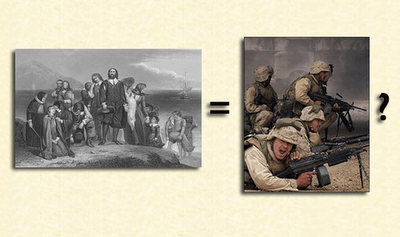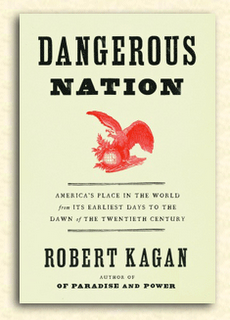|
|
The Jonathan Edwards Center at Yale University and companion blog are two of the finest online resources for anyone interested in 'America's premier theologian.' It is with great delight that I heard the news of The Works of Jonathan Edwards Online. Here is the announcement:
Works of Jonathan Edwards Online Public Beta
The Works of Jonathan Edwards Online is now available for use in a Public Beta phase. After thousands of hours of use, loads of email feedback from our initial Closed Beta team, and a great deal of internal QA testing, we are ready to make the Works of Jonathan Edwards Online available to the general public.
The Works of Jonathan Edwards Online is a world-class digital learning environment which will make Jonathan Edwards' entire manuscript corpus available for the first time in history. It is an XML-based, fully-searchable, thematically, scripturally, and chronologically tagged interface in which anyone can explore the entirety of Edwards' written thoughts.
Professor Ed Ayers, Dean of the College and the Graduate School at the University of Virginia writes that "this is wonderful in every way, especially with all the alternative ways of searching...you're not only making Edwards available in a profoundly new way, but you're also establishing a new standard for digital archives."
The Works of Jonathan Edwards Online presently contains all of the Miscellanies (Edwards' private theological notebooks) and some two hundred sermons, many of which have never been published. We are presently preparing the contents of numerous additional volumes for the official launch of our "Essentials" package in 2007.
Check it out! Explore the Works of Jonathan Edwards Online today.
HT: Between Two Worlds
PS - Chris, how about an update from last week's conference at the Rutherford House! What was that about transparencies?
 This is worth posting over myself. I just discovered this blog by Tony Reinke, called The Shepherd's Scrapbook. (Has anyone noticed how classy those Word Press blogs are? -- no offense, Blogger.) The blog includes a ton of info on our favorite early modern English Protestants, including an entire series on how to incorporate Puritan literature in the pulpit, and how to construct a real blank Bible like the one Jonathan Edwards used. (Now why haven't we thought of that here?) Consider us linked, Tony! This is worth posting over myself. I just discovered this blog by Tony Reinke, called The Shepherd's Scrapbook. (Has anyone noticed how classy those Word Press blogs are? -- no offense, Blogger.) The blog includes a ton of info on our favorite early modern English Protestants, including an entire series on how to incorporate Puritan literature in the pulpit, and how to construct a real blank Bible like the one Jonathan Edwards used. (Now why haven't we thought of that here?) Consider us linked, Tony!
Wrongly interpreted as isolationists who wanted to escape the world by building a "city upon a hill," the Puritans were actually, in Kagan's telling, "global revolutionaries" who came to the New World to establish a base from which they could convert the Old World. Other early settlers were less religious and more animated by what Kagan calls "acquisitive materialism." Neighbors who might block their acquisitions — whether Indians or Spaniards — were brushed aside or attacked. I haven't read Kagan's book yet, but the explanation of the New England settlers' motives above is basically accurate, in my understanding. Some questions that I pondered after reading Boot's review, about which I invite comment:
- How much weight should historians put on the concept of 'precedent' in any nation's foreign policy? In other words, can and do things like 'a desire to spread liberty at the point of a gun' really pass from generation to generation, even from one (important) subculture within a nation to others over time, as suggested here in the case of the Puritans and their national descendants? Does the decision of the U. S. to invade Iraq really have anything to do with the advent of the Puritans 370 years prior? I'm not saying it does or doesn't, just pondering; and,
- Is any cause worth spreading by coercion? For instance, if a strong and democratic nation is within reasonable proximity to a militarily weaker nation that is being cruelly oppressed by a tyrant, and the stronger nation has the ability (according to its best evaluations) to topple the tyrant and establish a society in which there is a significantly greater amount of liberty for its citizens, then is it ethically justified or even obligated to do so?; and if it is (either of those), at what point does the cost of such a venture, in terms of either casualties or money, become prohibitive?

Notes on PRRD I.108-122 are up.
In this section Muller contends,
“The theological prolegomena of the late sixteenth and seventeenth centuries are, arguably, the most exhaustive and most finely tooled prolegomena in this history of theology…Without exaggeration, the theological prolegomena of the seventeenth-century Protestant scholastics provide a model for the development of a distinctively Protestant but nonetheless universally Christian or catholic theology – a model that Protestant theology today can ignore only at great risk” (PRRD, 1.109).
|
|







